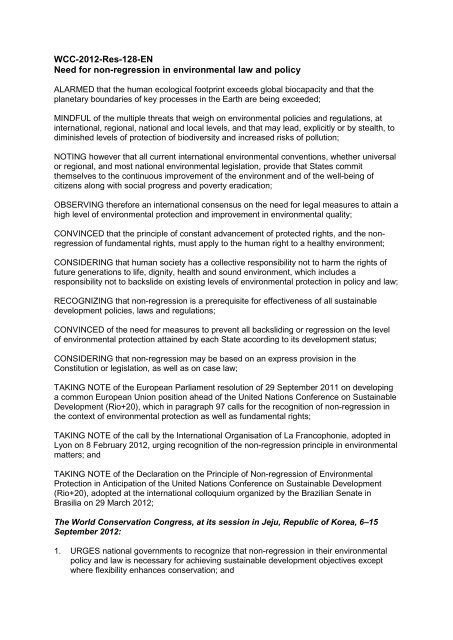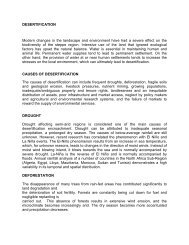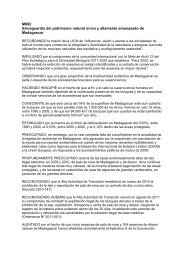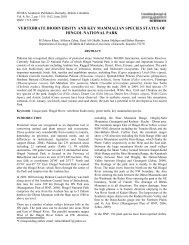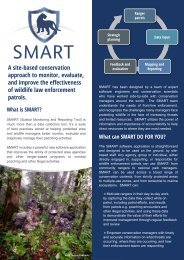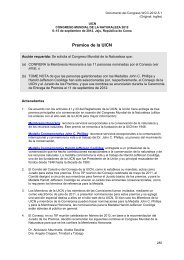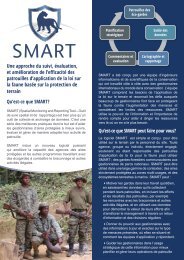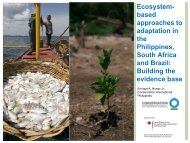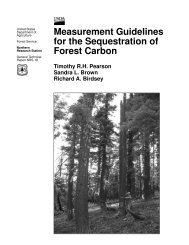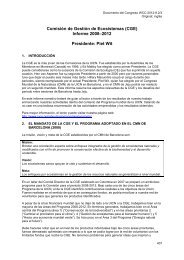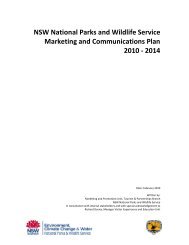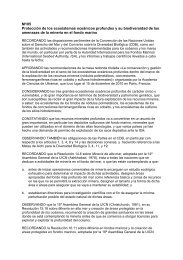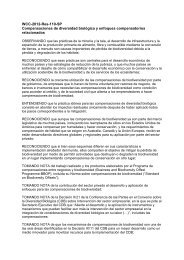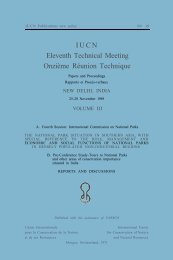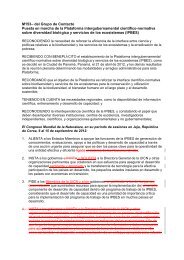Motion for IUCN Congress - IUCN Portals
Motion for IUCN Congress - IUCN Portals
Motion for IUCN Congress - IUCN Portals
You also want an ePaper? Increase the reach of your titles
YUMPU automatically turns print PDFs into web optimized ePapers that Google loves.
WCC-2012-Res-128-EN<br />
Need <strong>for</strong> non-regression in environmental law and policy<br />
ALARMED that the human ecological footprint exceeds global biocapacity and that the<br />
planetary boundaries of key processes in the Earth are being exceeded;<br />
MINDFUL of the multiple threats that weigh on environmental policies and regulations, at<br />
international, regional, national and local levels, and that may lead, explicitly or by stealth, to<br />
diminished levels of protection of biodiversity and increased risks of pollution;<br />
NOTING however that all current international environmental conventions, whether universal<br />
or regional, and most national environmental legislation, provide that States commit<br />
themselves to the continuous improvement of the environment and of the well-being of<br />
citizens along with social progress and poverty eradication;<br />
OBSERVING there<strong>for</strong>e an international consensus on the need <strong>for</strong> legal measures to attain a<br />
high level of environmental protection and improvement in environmental quality;<br />
CONVINCED that the principle of constant advancement of protected rights, and the nonregression<br />
of fundamental rights, must apply to the human right to a healthy environment;<br />
CONSIDERING that human society has a collective responsibility not to harm the rights of<br />
future generations to life, dignity, health and sound environment, which includes a<br />
responsibility not to backslide on existing levels of environmental protection in policy and law;<br />
RECOGNIZING that non-regression is a prerequisite <strong>for</strong> effectiveness of all sustainable<br />
development policies, laws and regulations;<br />
CONVINCED of the need <strong>for</strong> measures to prevent all backsliding or regression on the level<br />
of environmental protection attained by each State according to its development status;<br />
CONSIDERING that non-regression may be based on an express provision in the<br />
Constitution or legislation, as well as on case law;<br />
TAKING NOTE of the European Parliament resolution of 29 September 2011 on developing<br />
a common European Union position ahead of the United Nations Conference on Sustainable<br />
Development (Rio+20), which in paragraph 97 calls <strong>for</strong> the recognition of non-regression in<br />
the context of environmental protection as well as fundamental rights;<br />
TAKING NOTE of the call by the International Organisation of La Francophonie, adopted in<br />
Lyon on 8 February 2012, urging recognition of the non-regression principle in environmental<br />
matters; and<br />
TAKING NOTE of the Declaration on the Principle of Non-regression of Environmental<br />
Protection in Anticipation of the United Nations Conference on Sustainable Development<br />
(Rio+20), adopted at the international colloquium organized by the Brazilian Senate in<br />
Brasilia on 29 March 2012;<br />
The World Conservation <strong>Congress</strong>, at its session in Jeju, Republic of Korea, 6–15<br />
September 2012:<br />
1. URGES national governments to recognize that non-regression in their environmental<br />
policy and law is necessary <strong>for</strong> achieving sustainable development objectives except<br />
where flexibility enhances conservation; and
2. REQUESTS the <strong>IUCN</strong> World Commission on Environmental Law (WCEL) to continue<br />
studying and promoting non-regression in environmental policy and law globally, in<br />
international law, regional law as well as national law.<br />
State and agency Members of the United States voted against this <strong>Motion</strong>.


